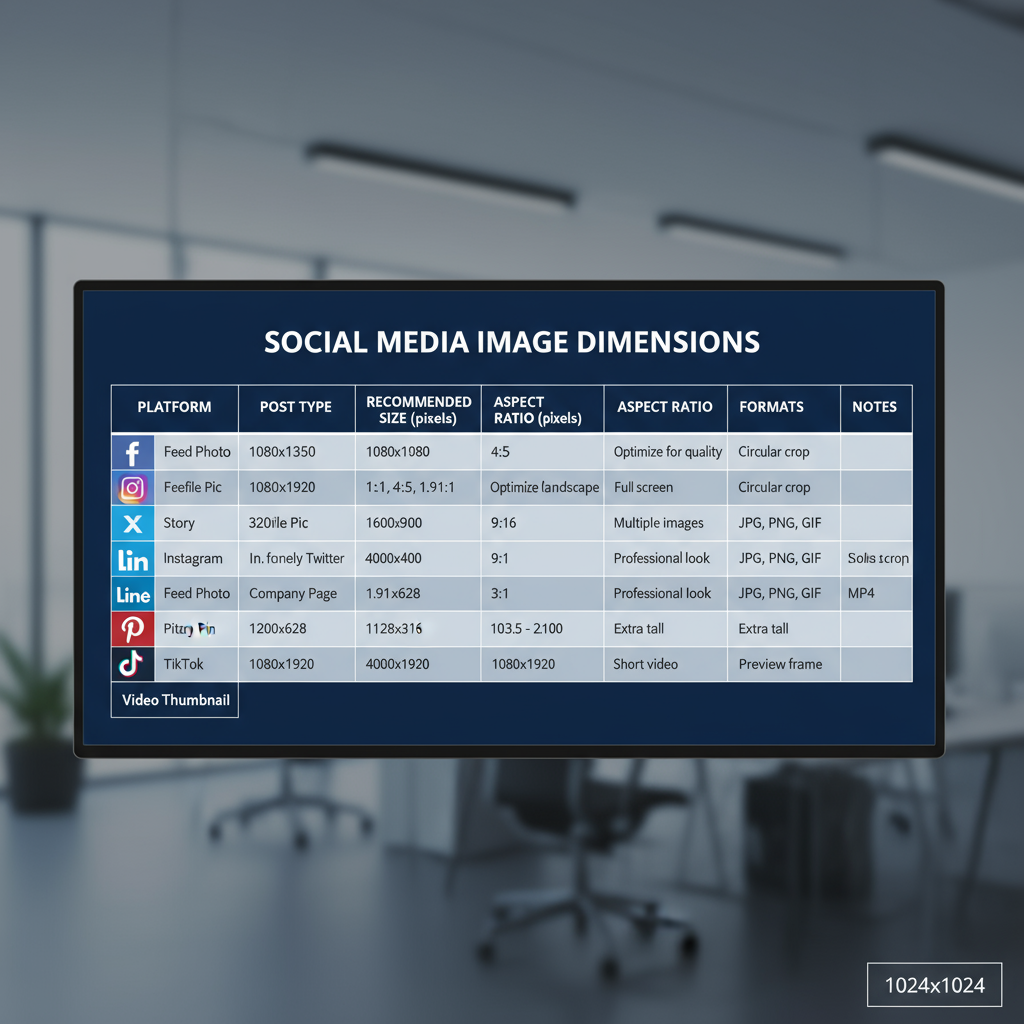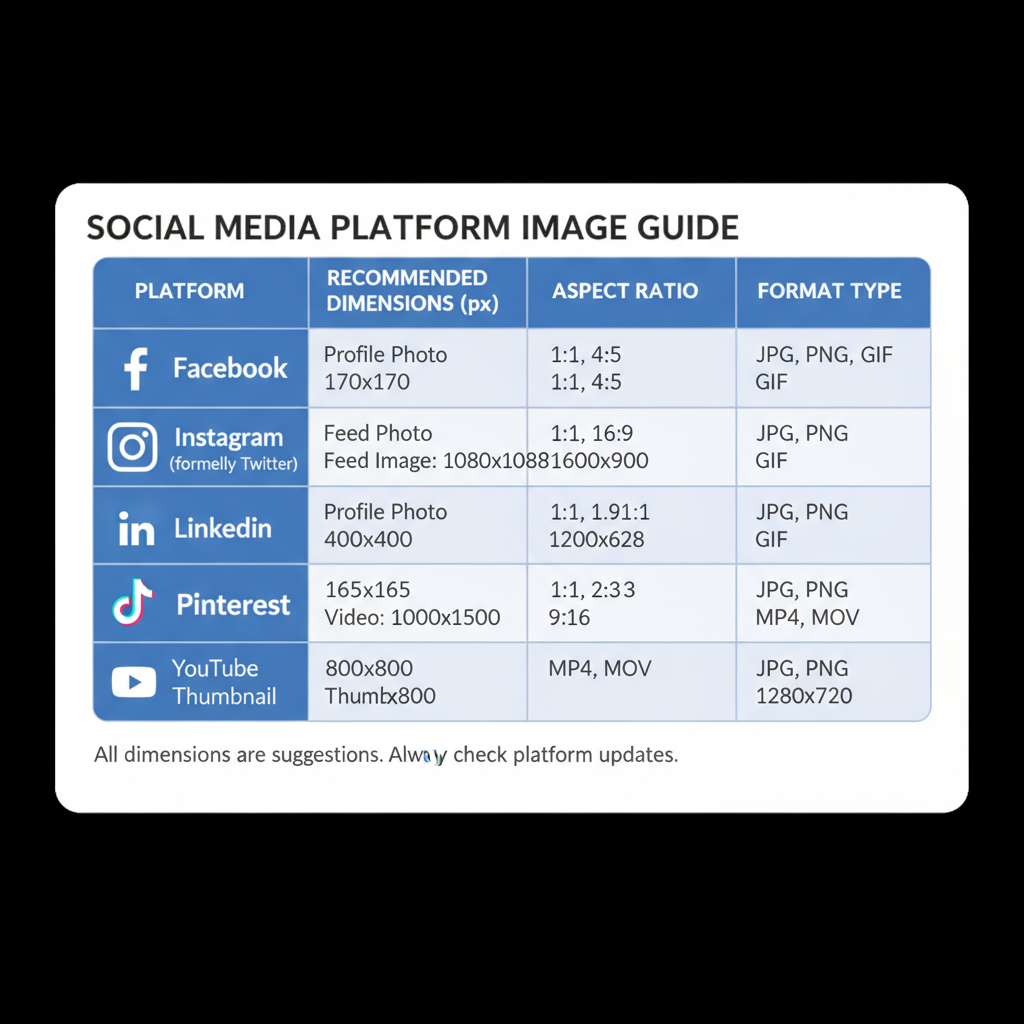Using Social Media Marketing Pictures for Maximum Impact
Learn how to create impactful social media marketing pictures by aligning visuals with audience preferences, brand identity, and SEO best practices.

Using Social Media Marketing Pictures for Maximum Impact
Social media platforms thrive on visual storytelling, and the right image can make your post stand out, increase engagement, and translate into tangible business results. Social media marketing pictures are more than just decoration—they are powerful tools that capture attention and convey brand identity in seconds.
This guide outlines proven tactics to elevate your social media images, from understanding your audience’s visual preferences to applying SEO to image assets, so you can maximize reach and return on investment (ROI).

---
Understand Your Target Audience’s Visual Preferences
The first step in creating impactful social media marketing pictures is knowing what resonates with your audience. Factors such as age, cultural background, location, and niche interests all influence responses to different imagery styles.
Quick tips to research visual preferences:
- Analyze your top-performing posts to uncover patterns in colors, subjects, and layouts.
- Use audience surveys or polls to ask what type of visuals they enjoy most.
- Study competitors’ imagery to identify what gains traction within your niche.
Whenever possible, tap into emotional triggers and cultural touchpoints that align with your audience’s values and lifestyle.
---
Choose the Right Image Formats for Each Platform
Each social media platform favors certain aspect ratios, and using the correct format keeps your visuals sharp, professional, and impactful.
| Platform | Recommended Ratio | Example Use Case |
|---|---|---|
| 1:1 (Square) / 4:5 (Portrait) | Product posts, promotional offers | |
| 1.91:1 (Landscape) | Link previews, event banners | |
| 2:3 (Vertical) | Tutorials, infographics | |
| 1.91:1 (Landscape) | Corporate announcements, thought leadership | |
| TikTok | 9:16 (Vertical) | Story-driven videos, behind the scenes |
Pro Tip: Preview posts in-platform before publishing to ensure no key visual elements are cropped.
---
Use High-Resolution, Brand-Consistent Images
Low-quality, pixelated visuals can harm credibility. Use high-resolution images with at least 1080 pixels on the shortest side for sharpness across devices.
Maintain brand consistency by:
- Incorporating brand colors into overlays or typography.
- Using recurring visual motifs like unique patterns or signature filters.
- Adding logos subtly in corners or as watermarks.
---
Incorporate Storytelling Through Sequences of Images
Images have more impact when they tell a cohesive story. Consider creating sequences that reveal a narrative:
- First image: The challenge your audience faces.
- Second image: Your solution in action.
- Third image: The transformation or benefit achieved.

Instagram carousels, Facebook albums, or LinkedIn multi-image posts are effective in guiding audiences step by step, encouraging more swipes and clicks.
---
Leverage User-Generated Content to Build Community Trust
User-generated content (UGC) is authentic, relatable, and builds trust. Customers showcasing your product or service in their own photos can significantly boost credibility.
Guidelines for using UGC:
- Request permission before sharing.
- Credit and tag original creators.
- Select UGC that aligns with your aesthetic.
Promote UGC creation through contests or branded hashtag challenges.
---
Optimize Image File Names and Alt Text for SEO
Optimizing social media marketing pictures for SEO provides visibility benefits on search engines.
Best practices:
- File names: Use descriptive, keyword-rich formats such as `social-media-marketing-pictures-product-launch.jpg` rather than `IMG1234.jpg`.
- Alt text: Write short, natural descriptions with targeted keywords to improve accessibility and search indexing.
This boosts your chances of appearing in Google Images and increases discoverability.
---
Apply Color Psychology to Influence Emotions and Actions
Colors directly impact perception and engagement:
- Red: Excitement, urgency.
- Blue: Trust, professionalism.
- Yellow: Optimism, creativity.
- Green: Growth, balance.
Select colors that match your brand palette and evoke the intended emotion in viewers.
---
Balance Branded Graphics with Authentic Lifestyle Photos
A well-curated feed blends both:
- Branded graphics: Ideal for promotions, announcements, and campaigns.
- Lifestyle images: Show real-world applications of your product to build relatability.
Mixing these formats helps maintain authenticity while reinforcing core brand visuals.
---
Run A/B Tests on Images to Measure Engagement Impact
Base your creative decisions on data, not assumptions:
- Test two variations of the same content with different images.
- Track CTR, engagement rates, and share counts.
- Adjust your images according to measurable performance differences.
Even subtle shifts—like altering lighting or subject placement—can influence results significantly.
---
Create a Content Calendar for Consistent Visual Posting
Consistency is key. A content calendar helps you plan seasonal themes, product launches, and campaigns in advance.

Include:
- Image source category (original, stock, UGC)
- Caption copy
- Target platform and format
- Scheduled post date
Project management tools like Trello, Asana, or Airtable can streamline scheduling and collaboration.
---
Repurpose Images Across Platforms with Tailored Edits
Great visuals have multiple uses, but each platform requires nuance:
- Adjust cropping to fit platform ratios.
- Modify overlays to match audience expectations.
- Revise captions and hashtags for different platform cultures.
This ensures your content remains optimized and engaging wherever it appears.
---
Track Performance Metrics to Refine Strategy
Analyzing visual content metrics helps refine strategy over time. Track:
- CTR (Click-Through Rate): Interaction effectiveness.
- Engagement Rate: Likes, shares, comments versus total reach.
- Conversions: Sales or sign-ups driven by image campaigns.
Continuous analysis allows you to identify trends and implement improvements.
---
Summary and Call to Action
Powerful social media marketing pictures can be the tipping point between a user scrolling past or engaging with your post. By understanding your audience, applying platform-specific formatting, incorporating storytelling, leveraging UGC, and optimizing for SEO, you set your brand up for visual success.
Continue testing, analyzing, and iterating for maximum impact. Start applying these strategies to your next campaign and watch your engagement and conversions rise.



